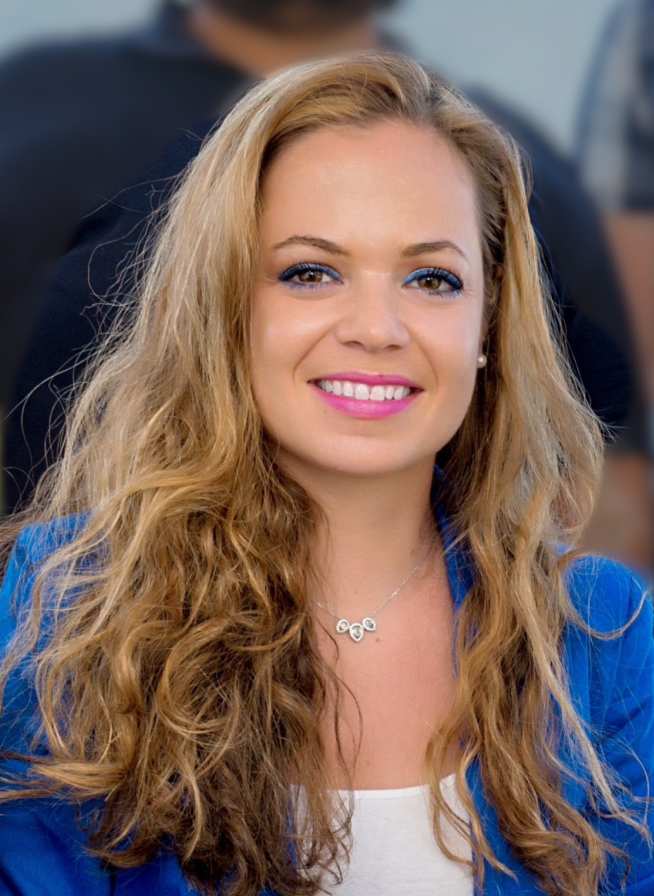
Margarita Chli (PhD Computing, 2010) is an Assistant Professor at ETH Zurich leading the Vision for Robotics Lab (V4RL) and the vice-director of the Institute of Robotics and Intelligent Systems (IRIS) at ETH Zurich.
Tell us about your time at Imperial
"My studies at Imperial were a great experience. Stressful, of course, but also creative and educational both on an academic and a personal level. What this opportunity at Imperial offered to me, was foremost, a great supervisor with a unique passion for research, brilliant ideas and unreserved kindness, which made me fight harder. This, together with my incredible office mates, who have been most supportive through the ups and downs of my PhD, made my days in London sunnier than they would otherwise be."
Why did you choose to study at Imperial?
"My sister studied at Imperial earlier on and had highly praised the experience, so Imperial was at the top of my list to do a PhD. Then I met the brilliant person that would, later on, become my PhD advisor, so the decision was not difficult."
Can you tell us what you’ve done since Graduation?
"I am now an Assistant Professor at ETH Zurich leading the Vision for Robotics Lab (V4RL) and the vice-director of the Institute of Robotics and Intelligent Systems (IRIS) at ETH Zurich. Following my PhD in computer vision for robotics, I got to work on drone perception at ETH Zurich and at the University of Edinburgh, and during this time, I was fortunate enough to participate in the team that demonstrated the first vision-based autonomous flight of a small helicopter. This marked the beginning of another exciting journey with many challenges, but also recognition from the scientific community, with features in Robohub’s list of 25 women in Robotics you need to know about, Reuters and CNN, as well as invitations to speak at the World Economic Forum in Davos and the International Conference of Robotics and Automation (ICRA)."
How has what you learnt at Imperial helped you in your career so far?
"My time at Imperial has been instrumental to my career (and life) later on and while it was a testing experience, as most PhD journeys are, it was also a very enjoyable and educational one. Having experienced a great environment during my PhD years at Imperial, one of inspiration, ambition, great work ethic, and at the same time, friendly, I am striving to re-create similar conditions for my working environment and that of my students to this day."
Do you have any advice for current Imperial students?
"All great things need great effort, so the ups and downs, the stress and the challenges while studying are expected. What helped me, and might help you perform best academically, was a supportive environment; with good friends, hobbies and opportunities to develop yourself both academically and on a personal level."
Margarita's advice for current students
"The ups and downs, the stress and the challenges are expected, but all great things need great effort! Create a productive and supportive environment for you, with good friends, enjoyable hobbies and opportunities to develop yourself both academically and personally."
